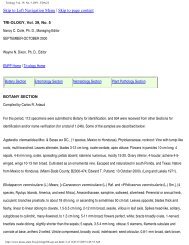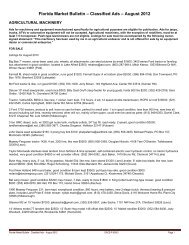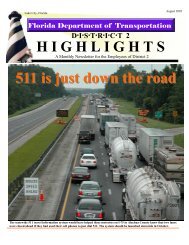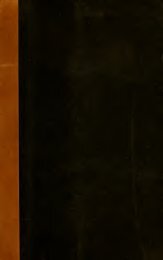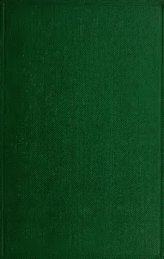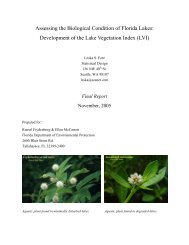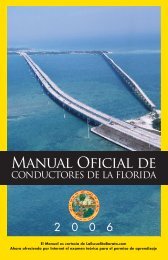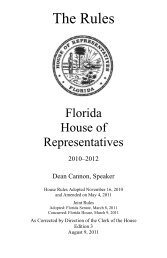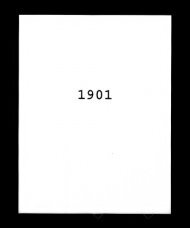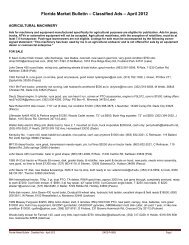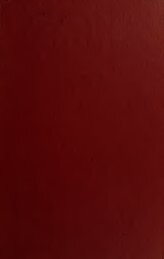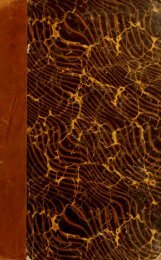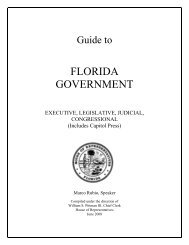1822 - Edocs
1822 - Edocs
1822 - Edocs
You also want an ePaper? Increase the reach of your titles
YUMPU automatically turns print PDFs into web optimized ePapers that Google loves.
s<br />
L<br />
f<br />
quiet posseslion<br />
for three years<br />
*Ifjudgment against<br />
plaintiff.<br />
Execution of judgment.<br />
• Appeal.<br />
Traverse<br />
Judgment as aforesaid<br />
no bar.<br />
180<br />
plaintiff hath (or hath not) the right of possession in the<br />
tenement aforesaid.<br />
15. Be it further enacted, That, if the verdict so found,<br />
on a complaint of a forcible entry, or of an unlawful entry,<br />
shall ascertain that such forcible entry, or unlawful<br />
entry as the case may be, whereby the plaintiff was turned<br />
out uf possession, was made by the defendant within<br />
three years before the exhibition *of the complaint, and<br />
that the defendants possession continued at the time of<br />
exhibiting the complaint; or, if the verdict found as aforesaid,<br />
upon a complaint of unlawful detainer against the<br />
consent of the plaintiff, shall ascertain that the defendant,<br />
at the time of the exhibition of said complaint, held the<br />
poss^ ssion of the tenement therein mentioned, against<br />
the consent of the plaintiff; that the said defendant had<br />
not so held, against the consent of-the plaintiff, within<br />
three years next before the exhibition of said complaint;<br />
and that the plaintiff hath the right* of possession, in the<br />
tenement aforesaid; then, in either of tin se cas. s, the<br />
justice shall render judgment in favor of the plaintiff,<br />
that he recover possession of the tenement aforesaid,<br />
with full costs, and shall award a writ of habere facias<br />
possessionem.<br />
16. Be it further enacted, That, if the verdict found as<br />
aforesaid, in either of the said cases, shall be in favor of<br />
the defendant, the justices shall render judgment against<br />
the plaintiff, that his complaint be dismissed, and that<br />
the defendant recover of him full costs.<br />
17. Be it further enacted, That, the judgment of the<br />
justices rendered as aforesaid, either in favor of the plaintiff,<br />
or in favor of the defendant, shall in all respects, be<br />
executed in the same manner, as if it had been the judgment<br />
of the court of the county at any ordinary term<br />
thereof. But if either party think himself aggrieved he<br />
shall have a right to appral to the next circuit court of<br />
the county, on filing with said justices a traverse to this<br />
effect, A. B. says the inquisition in this case is not true,<br />
he therefore prays *an appeal to the circuit court—upon<br />
which the justices shall suspend all further proceedings<br />
and certify a copy thereof to the circuit court, on the appellants<br />
giving bond and security to be^approved of by<br />
said justices, to answer all costs occasioned thereby.<br />
Which said traverse shall be tried as an original case and<br />
the verdict of the jury, shall say whether the said inquisition<br />
be true or not true, and judgment shall be pronounced<br />
and execution issue accordingly.<br />
18. Be it further "nacted, That, no judgment rendered<br />
as aforesaid, either for the plaintiff or defendant, shall<br />
bar any action of tresspass, or any writ wf ejectment or<br />
writ of right, between the same parties, respecting the<br />
same tenement, nor shall any verdict found as aforesaid



